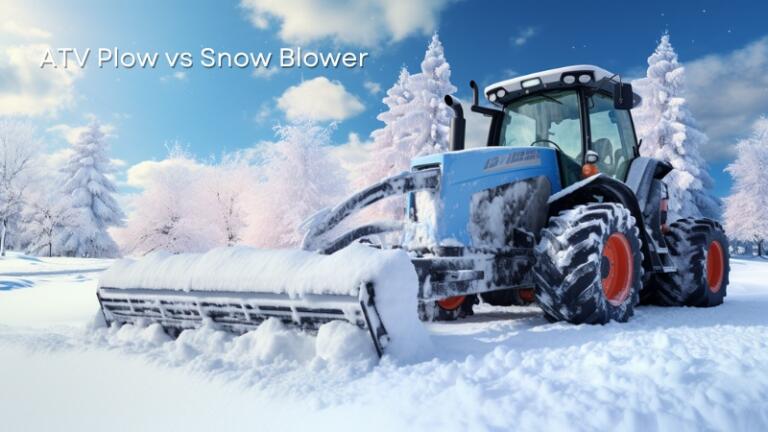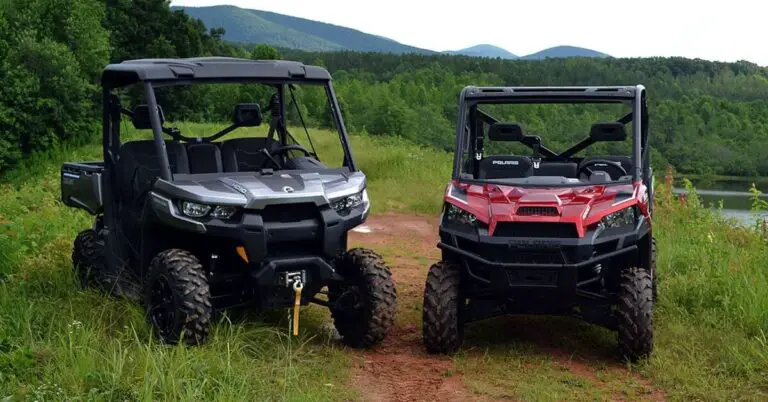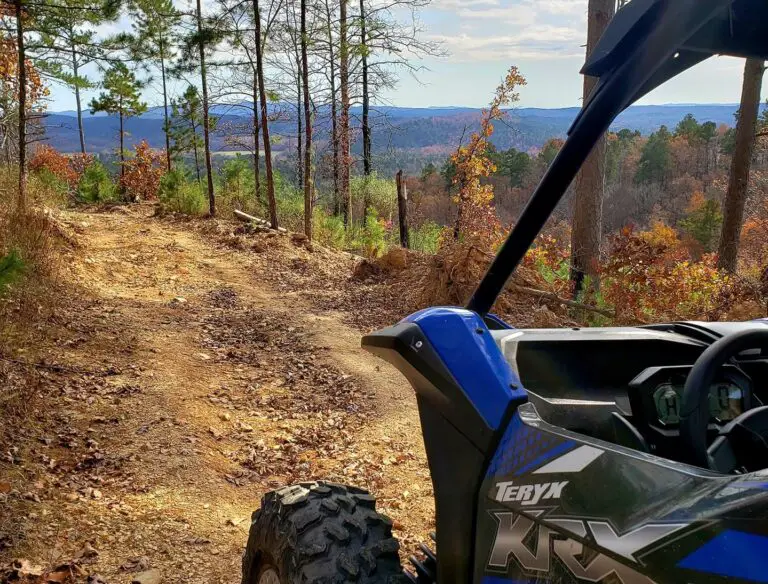Are Atvs Street Legal in Virginia
ATVs are not street legal in Virginia due to safety concerns and specific laws.
Understanding The Legal Aspects Of Atvs In Virginia
ATVs in Virginia: Discover the Legal Requirements for Street Use. Navigate the specific regulations governing ATVs on Virginia roads and explore the topic of whether ATVs are classified as street legal in the state. Find crucial information to ensure compliance and safe enjoyment of your off-road adventures in Virginia.
Overview Of Atv Regulations In Virginia
ATVs (All-Terrain Vehicles) are popular recreational vehicles in Virginia, offering off-road enthusiasts the thrill of exploring rugged terrains. However, it is essential to understand the legal aspects of operating ATVs in the state.
In Virginia, ATV regulations vary depending on whether you plan to ride on public roads or off-road trails. When it comes to on-road use, ATVs must meet specific criteria to be considered street legal. These include requirements such as headlights, taillights, turn signals, mirrors, and a horn. Additionally, operators are required to have a valid driver’s license and register their vehicle with the Department of Motor Vehicles.
On the other hand, off-road use of ATVs in designated areas, such as private property or authorized trails, generally does not require street-legal modifications. However, it is crucial to check local ordinances and obtain any necessary permits.
Understanding the legal requirements and differentiating between on-road and off-road ATV use in Virginia is essential to ensure a safe and compliant riding experience. Always make sure to adhere to the specific regulations to avoid penalties and enjoy ATV adventures in the state.

Credit: www.reddit.com
Licensing And Registration For Atvs In Virginia
Registering ATVs in Virginia and obtaining proper documentation: Before operating an ATV on the streets of Virginia, it is important to ensure that the vehicle is properly registered. In Virginia, all ATVs must be registered with the Department of Motor Vehicles (DMV). To register your ATV, you will need to complete a registration application and submit it to the DMV along with the required fees. Once registered, you will receive a registration card and a set of license plates, which must be affixed to your ATV.
Understanding the age restrictions for operating ATVs on public roads in Virginia: In Virginia, there are specific age restrictions for operating ATVs on public roads. Generally, individuals under the age of 16 are not permitted to operate ATVs on public roads unless they are under the direct supervision of a responsible adult. However, there is an exception for individuals between the ages of 12 and 16 who have completed an ATV safety training course. These individuals may operate ATVs on public roads, but only during daylight hours and at speeds of less than 35 miles per hour.
Safety Equipment And Modifications For Street Legal Atvs
Mandatory safety equipment needed for street legal ATVs in Virginia:
Virginia law requires that all ATVs operated on public roads must have the following safety equipment:
- Headlights: ATVs must have at least one, but preferably two, headlights that emit a white light.
- Taillights: ATVs must have at least one, but preferably two, taillights that emit a red light.
- Brake lights: ATVs must be equipped with at least one brake light that emits a red light when the brakes are applied.
- Turn Signals: If an ATV was manufactured after July 1, 2001, it must have turn signals that indicate a left or right turn.
- Reflectors: ATVs must be equipped with reflectors on the rear, front, and sides to improve visibility.
- Horn: A horn is required to be audible from a distance of at least 200 feet.
Inspecting and maintaining ATVs for safe on-road use in Virginia:
Before taking your ATV on the road, it is important to inspect and maintain it for safe on-road use. Check your ATV’s tires, brakes, lights, signals, and other safety features regularly to ensure they are in proper working condition. Additionally, follow the manufacturer’s recommendations for maintenance and servicing. Regular oil changes, filter replacements, and overall maintenance will help keep your ATV in top shape and reduce the risk of accidents or breakdowns.
Information on modifications necessary to make an ATV street legal in Virginia:
Modifications are often necessary to make an ATV street legal in Virginia. Some common modifications may include installing additional lighting and reflectors, adding a horn, and attaching mirrors. You may also need to modify the ATV’s exhaust system to meet noise requirements. It is important to consult the Virginia Department of Motor Vehicles (DMV) or local authorities for specific guidelines on ATV modifications. Failure to make the necessary modifications could result in penalties or legal issues, so it’s crucial to understand the requirements and ensure compliance.
Navigating Virginia’s Roadways With Atvs
Operating an All-Terrain Vehicle (ATV) on public roads in Virginia requires a thorough understanding of the rules and regulations set by the state. It is important to be aware of the specific restrictions and requirements to ensure safe and legal travel. Virginia law sets specific speed limits and restrictions for ATVs on streets. These vehicles are not allowed to exceed 35 mph on public roads, and they must follow the same traffic laws as other motor vehicles. Additionally, it is recommended to familiarize oneself with the recommended routes and trails for safe ATV travel in Virginia. These designated paths provide the opportunity to enjoy off-road adventures while minimizing conflicts with other road users. Before hitting the road, ensure compliance with Virginia’s regulations and always prioritize safety.
Compliance Enforcement And Penalties
Fines and penalties for operating non-street legal ATVs on public roads in Virginia:
| Violation | Fine | Possible Penalties |
|---|---|---|
| Operating ATV without required equipment | $50 – $250 | Confiscation, registration suspension, impoundment |
| Using ATV in prohibited areas | $200 | Confiscation, registration suspension, impoundment |
| Racing ATV on public roads | $250 – $1,000 | Confiscation, registration suspension, impoundment, jail time |
The role of law enforcement in enforcing ATV regulations in Virginia:
Law enforcement agencies play a vital role in enforcing ATV regulations in Virginia. They conduct regular patrols, checkpoints, and inspections to ensure compliance with the law. When violations are identified, appropriate action is taken, which may include issuing citations, imposing fines, confiscating ATVs, suspending registrations, and impounding vehicles as necessary. Additionally, law enforcement officers often work in conjunction with other agencies and organizations to promote ATV safety awareness and educate the public on the importance of adhering to regulations.
Exemptions And Exceptions For Atvs In Virginia
The regulations surrounding the use of ATVs on public roads in Virginia can be complex, but there are exemptions and exceptions that allow certain ATVs to be used in specific circumstances. One such exemption applies to agricultural, utility, and emergency service ATVs. These types of ATVs are often exempt from certain regulations, allowing them to be used for specific purposes such as farming, utility work, or emergencies.
It’s important to note that there are common misconceptions regarding ATV exemptions and exceptions in Virginia. While there may be some flexibility in certain situations, it’s essential to understand the specific rules and regulations that apply to ATVs in your area. This will help avoid any potential legal issues and ensure the safe and responsible use of ATVs on public roads.
Resources And Additional Information
Where to find further information on ATV regulations in Virginia:
- Virginia Department of Game and Inland Fisheries (VDGIF): VDGIF provides comprehensive information on ATV regulations, including where they are allowed and the necessary permits and licenses.
- Virginia Department of Motor Vehicles (DMV): The DMV can provide information on registering ATVs for street use and any additional requirements or restrictions.
- Local Law Enforcement Agencies: Contact your local police or sheriff’s office for specific guidelines and regulations related to ATVs in your area.
Helpful organizations and agencies related to ATV use in Virginia:
- Virginia Off Highway Vehicle Association (VOHVA): VOHVA advocates for responsible and legal ATV use and provides resources and information on trail systems and riding areas in Virginia.
- ATV Safety Institute: This nationally recognized organization offers safety training courses for ATV riders of all ages and provides valuable resources for safe riding practices.
Frequently asked questions regarding ATVs and their street legality in Virginia:
- Are ATVs allowed to be driven on public roads in Virginia? ATVs are generally prohibited from being driven on public roads in Virginia unless they are properly registered and equipped with the necessary safety features.
- What are the requirements for registering an ATV for street use in Virginia? ATV owners need to obtain a title, registration, and license plate from the DMV, along with meeting specific equipment requirements.
- Where are ATVs allowed to be ridden in Virginia? ATVs are typically restricted to designated trails, private property with permission, or off-road parks in Virginia.
Frequently Asked Questions Of Are Atvs Street Legal In Virginia
Are Atvs Street Legal In Virginia?
ATVs are not street legal in Virginia because they are not designed to meet the requirements for on-road use. They are only allowed on private property or designated off-road trails. Operating an ATV on public streets is against the law in Virginia.
Can You Ride Atvs On Public Roads In Virginia?
No, riding ATVs on public roads in Virginia is prohibited. ATVs are designed for off-road use and are not equipped with the necessary features for safe on-road travel. It is illegal to operate an ATV on public streets, highways, or sidewalks in Virginia.
What Are The Penalties For Riding Atvs On Public Roads In Virginia?
Riding an ATV on public roads in Virginia can result in serious penalties including fines and the possibility of having your ATV impounded. Breaking the law by operating an ATV on public roads can also lead to a suspension of your driving privileges in the state.
Conclusion
To sum up, Virginia ATV laws clearly define the conditions under which ATVs can be operated on public roads. It is important to be aware of the specific regulations and requirements to ensure a safe and legal riding experience. Familiarizing oneself with the state’s licensing, registration, and equipment rules, as well as respecting speed limits and traffic laws, is crucial for ATV enthusiasts in Virginia.
By staying informed and following the established guidelines, riders can enjoy the thrill of ATVs while also promoting safety on the streets.






